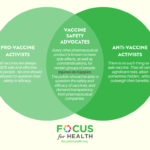-

Meditation: A Brain Changer
A regular practice of mindfulness can improve health, decrease manifestations of aging, change brain structure, help regulate emotions, improve overall well-being, and help reduce health care costs. Unlike surgical or pharmaceutical interventions, mindfulness has no known side-effects! There are numerous free or low-cost options in almost every community, as well as online options, making mindfulness accessible for everyone.
-

Is Our Western Lifestyle Influencing Breast Cancer Rates?
“Nun’s Disease,” more universally known as breast cancer, is the most common cancer diagnosed in women and second most common cancer worldwide. According to the CDC’s statistics, 1 out of 8 women will be diagnosed with breast cancer within their lifetime. Take a second to think about eight special women in your life. Based off on these statistics, one…
-

Hazardous Homes- Part 4 Exploring Government Solutions
While improving housing through private efforts is an important piece of the puzzle, addressing housing affordability and conditions through non-profit and activist efforts alone would be nearly impossible. Government funding is critical to the solution but must be directed at improving affordable housing conditions for every individual, with special precautions taken to avoid any policy that could potentially increase discriminatory practices.
-

Everything You Wanted to Know About CBD Oil But Were Afraid to Ask…
What exactly is CBD and what does the law say about it?
-

Hazardous Homes: Part 3 Exploring Local Solutions
Neighborhood Solutions A built environment is defined as all physical parts of where we live and work, such as homes, buildings, streets, open spaces, and infrastructure. There have been a number of studies linking the built environment with physical activity, obesity, asthma, among other chronic conditions. Interventions designed to address the built environment can take…
-
Hazardous Homes: How Built Environment Affects Health Part 2
Physical Conditions Within Homes The Flint water crisis began in 2014 but captured the nation’s attention in 2016. A report emerged that 40% of Flint homes had elevated levels of lead; a state of emergency was declared. Flint became a flash-point for systemic negligence, racism, and class-ism, but there were over 3,000 areas with recorded…
-

Hazardous Homes: How Built Environment Affects Health – Part 1
America has many substandard built environments, including unsafe neighborhoods and living conditions, that directly impacts health and longevity.
-

Corporate Influence Over Research is a Threat to Public Health
Corporate influence over scientific research, and the subsequent marketing campaigns, require everyday people to look deeper to protect their health.
-

Why not look for common ground?
In 2019 the WHO named "vaccine hesitancy" one of the greatest threats to public health. So why not try to find common ground between the opposing sides?
-

The Land Of The Lonely: How Loneliness Contributes to Poor Health
Learn interventions to combat the negative health effects of loneliness, like finding an in-person community, limiting social media, & meditation.
